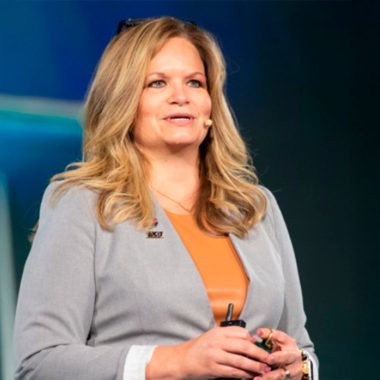Few areas of finance touch people’s lives as frequently as payments. Every tap of a card, every online checkout, every supplier invoice flows through systems that must be both invisible and flawless. Beneath that everyday convenience lies an industry in constant flux, reshaped by technology, regulation, and shifting customer expectations. Banks and fintechs now compete to deliver not just faster transactions but smarter, more relevant experiences. It is in this dynamic, and opportunity-rich landscape that Nicki Bull Bisgaard has built his career.
“I have been in payments and retail banking for 35 years. That is all I have ever done,” says Bisgaard, whose early roles at Visa and Mastercard helping expand commercial B2B markets across Europe, gave him a front-row seat to the globalization of payments. He later became the first chief executive of what would grow into the largest card issuer in the Nordics before founding PayTech Consulting 26 years ago. Since then, PayTech has delivered 800 projects across dozens of countries, while the broader PayTech Group now blends advisory expertise with technology platforms that help banks create tangible value for both retail and business customers.
Fixing the SME Blind Spot
If there is a single theme running through Bisgaard’s work, it is a relentless focus on small and medium sized businesses. He argues that SMEs remain underserved by traditional providers, not because banks lack data, but because they fail to use it. “Banks have more data than they are aware of. They know everything about you, they just don’t know how to use it” he says. The result is a steady stream of irrelevant offers that signal indifference rather than insight.
“The starting point for customer centricity is wanting to do better, having a desire to be relevant to your customers,” he says. PayTech’s answer is to give banks modern, fintech-quality solutions that sit on top of legacy core banking and payment systems so institutions can act on the data they already possess and deliver tools SMEs actually need and want to use.
Regulation as a Catalyst, Not a Constraint
In many bank boardrooms, compliance is seen as a necessary friction. Nicki Bull Bisgaard sees it differently. “Regulations exist for a reason,” he says. For him, open banking isn’t a challenge—it’s an opportunity.
“It puts control into the hands of consumers and businesses. That’s a feature, not a bug,” Bisgaard explains. “Open banking lets you view all your accounts across different banks in a single interface. Banks may grumble, but users win every time.”
He is equally clear on GDPR. “People often think it’s restrictive, but it’s really about empowerment. You decide how your personal data is used, and companies have to respect that. That level of control is something we should embrace.”
For leaders shaping innovation pipelines, his advice is to treat modern regulation as an enabler. Build services that respect data rights, reduce fraud, and give customers a single, coherent view across accounts. Those foundations open the door to differentiation rather than closing it.
Designing for Real Life, Not Internal Charts
Bisgaard believes part of the industry’s misfire comes from a lack of lived experience in serving small businesses. He often asks rooms of bankers how many have actually run one. Few hands go up. That gap shows up in product choices, service design, and even tone. Customers increasingly hold multiple accounts in multiple countries, then face six different logins and no consolidated view. Someone will solve that fragmentation, predicts Bisgaard, by finally prioritizing the customer’s daily reality. “We try to provide a fintech front to an old fashioned bank,” he says. That means intuitive interfaces, automated workflows, and analytics that surface the next best action for the business owner rather than another generic cross sell.
The Next Edge Is Hyper Personalization at Scale
When asked what will define customer-centric banking in the coming years, Bisgaard doesn’t hesitate. “AI and hyper-personalized financial services. There’s no question about it.”
The building blocks are already in place. Banks can combine behavioral data with machine learning to anticipate customer needs and deliver relevant experiences—without armies of analysts, marketeers and relationship managers. “There’s no need to send irrelevant offers,” he says. “You already know enough about your customers to avoid that.”
Bisgaard trusts systems that operate consistently and unemotionally, as long as they are transparent and aligned with the customer’s objectives. The ultimate goal is simple: everyday banking should be seamless and effortless, allowing customers to focus on their lives and their businesses while their finances are managed intelligently behind the scenes.
For more insights from Nicki Bull Bisgaard, connect with him on LinkedIn.








